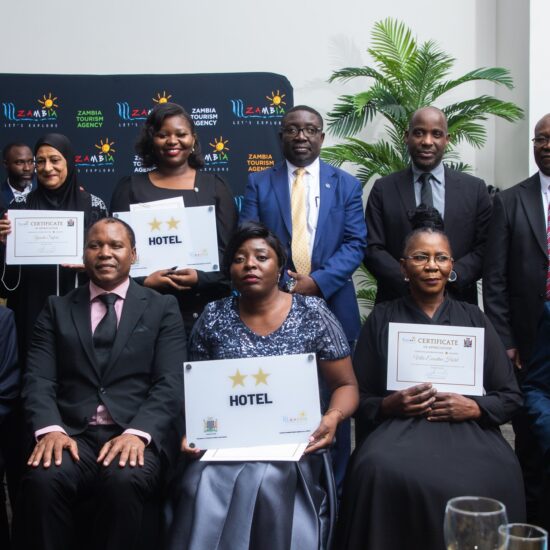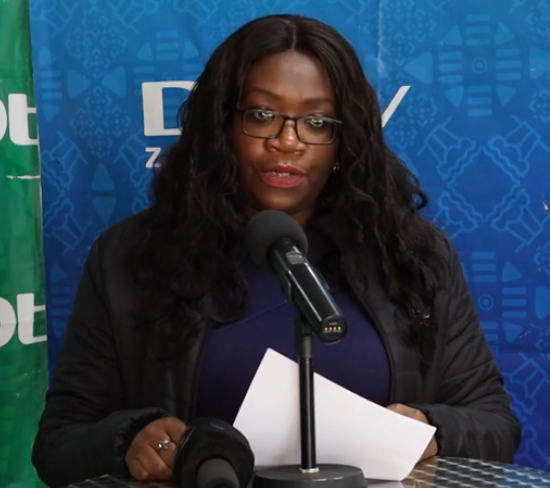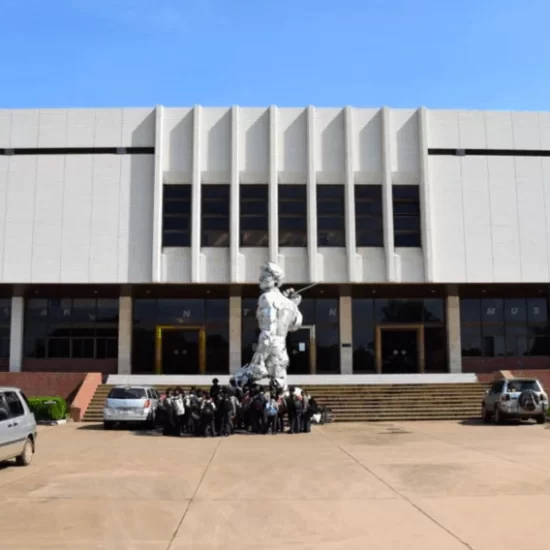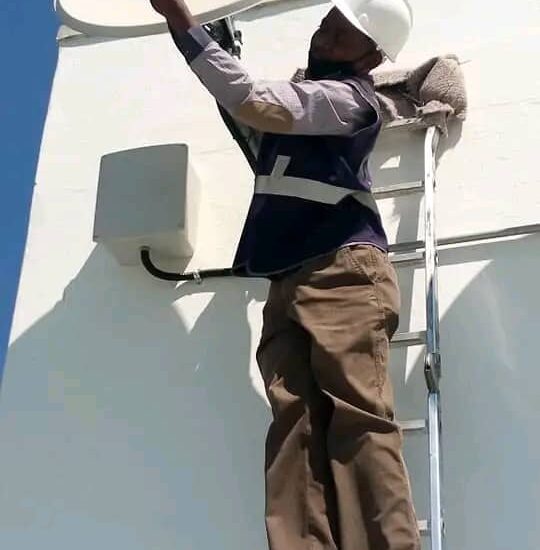Excitement is building ahead of SuperSport’s telling of one of the most dramatic and emotional stories in South African football: the creation, growth, and enduring dramatics of the Premier Soccer League.
South African football is awash with stories, stories of redemption, hope, sorrow, disappointment, fervour, fans, and heroes.
One of the most enthralling of these is how the modern professional game first took root in the 1930s and wound its way through the decades, often in the face of apartheid and its associated horrors, to offer a glorious counterpoint.
This story has finally got its due with the production of “Pulse of a Nation”, a four-part documentary that puts a lens on a critical pillar of South Africa’s most popular sport. A story rich in drama, controversy, heroes, pathos, and celebration, the first episode will premiere on SuperSport and Mzansi Magic on September 10.
This comes some months after it was first due to air, allowing the filmmakers to land some belated – and vital – additional interviews and footage.
This is a story of South African football, about many of the events and people who shaped the game. There are, of course, many more stories and versions of history, and this account therefore isn’t an attempt to be definitive or all-encompassing. It can’t be the canvas of local football is too vast, overflowing with characters, goals, and glories.
The filmmakers have drawn on historical footage, much of it rare, and used it to weave a sweeping story that is as compelling as it is startling. At its start, it tells the tale of political figure James Mpanza, who pushed the cause of social activism by establishing a boys’ club in Soweto in 1934, which in turn led to the formation of Orlando Pirates three years later.
If these were among the green shoots of professional football as we know it, better still was the sense of pride it instilled in black people especially. As SuperSport’s own Thomas Kwenaite, a veteran chronicler, says, “Players knew they had to entertain us . . . for us to forget about the harshness during the week.”
Indeed, apartheid’s degradations are a constant theme of the documentary, but as the reviled system took hold, so did the football establishment, which offered hope and happiness parallel to politics.
As an African story, the timeless tradition of oral storytelling became an element that had to be included.
The storyteller thus had to have lived experience with the world of football.
Prominent actor Sello Maake KaNcube is no stranger to this world – his father Joseph “Skehla” Ncube was an Orlando Pirates goalkeeper, and his finely-honed dramatic craft meant he was a natural fit. KaNcube narrates the series and gives it the gravitas it deserves.
“My spirit was warmed [by the project],” he said. “The history of South African football has hasn’t really been captured in its essence. This approach . . . I love how it was captured. Truly, South African football is the pulse of the nation. As young people growing up, we knew no other sport.”
His own story of football illustrates a journey of family, community, and pride.
“I grew up in Atteridgeville, a fan of Pretoria Bantu Callies. I then mutated to Sundowns. But my blood was pulling me to Orlando Pirates because my father used to play for them in the late 1950s and early 1960s until a car accident took him out of football. I used to say I’m a yellow bone, but my blood is black and white.”
As a leading actor for whom language is a pillar, he believes that stories must be told authentically.
“It is so important that we tell stories even while using our own languages. It is said that when you speak to a man in his own language, you are speaking to his heart. The only way that we can reach all people is by speaking in the languages that they know and have grown up with. Language almost becomes a key to a culture.”
Inevitably, the best, most poignant imagery is associated with the early years through the 1940s, 1950s and beyond, offering a peek into a world where people like the “Magnificent Seven”, a particularly special group of football-loving women, George Thabe, Kaizer Motaung and Irvin Khoza all unwittingly became architects of the vibrant game we know today.
Made in partnership with production company T&W, key to the filmmakers’ approach was to ensure the stories of South African football are not forgotten. With football’s “golden age” receding, their strongest impulse was to ensure these stories were not allowed to pass into myth. It offered a chance for those who were there to tell their stories.
“Pulse of a Nation” is thus a work of tremendous cultural significance; stories that speak to
several generations at once and an artefact of what football means to South Africans.
“The series takes the form of a tribute to those great men and women who built the game we love to what it is today,” explained Gareth Whittaker, executive producer of the documentary. “The storytellers stand on the shoulders of giants, and what a privilege that is.”
The project is peppered with anecdotes and memories from a range of football personalities, each of whom adds a layer of insight into how the Premier Soccer League was to become such a powerful force.
There are several welcome voices that add to the heady brew, including former Santo’s striker Duncan Crowie, who talks of the injustices of the ruling regime at the time, and of the decision by some Cape clubs not to join the National Soccer League.
Others who talk to camera are stalwarts like Khoza, Motaung, Mme Moipone Moorosi (the Iron Lady of Orlando Pirates), Shakes Mashaba and Imtiaz Patel.
Happily, the uniqueness of local football is constantly writ large across the screen as players with colourful nicknames like “Ace”, “Pro”, “Troublemaker” and “Roadblock” become folk heroes with their flamboyant play, all while demonstrating the virtues of a people who had been denigrated and denied by the government of the day.
The creation of Kaizer Chiefs in the early 1970s, by a Pirates’ stalwart in the form of Motaung no less, gets its due treatment, so too the fairy tale of Manning Rangers’ unlikely title triumph.
Ironically, as the game emerged from the shadows, so the ruling government’s grip retreated. SA football became a metaphor for a bold new age; characters emerged, and the sport became a powerful expression of self.
Little of the local game’s history is dull. It never could be, not with the powerful figures who abound, nor with the passionate fans who give such life to the game.
Unsurprisingly, the filmmakers have placed a big emphasis on how local football seamlessly integrated itself into the lifestyles of South Africans, influencing fashion, music, football and much else to become a central point of public life.
Film director Luthando Tshaya speaks movingly of the project: “I have always heard the story of South African football told in fragments and in isolation. It has been the privilege of my career to be
given the responsibility of being part of the team that finally brings this narrative to life.
“This documentary weaves together the threads of our history, our people, and our love of this game, and provides an integrated view of the sport’s evolution, challenges, and triumphs.
“It was an honour and pleasure to build this story as a reference point for many generations to come, and we all cannot wait to share it with the people who love this game as much as we do.”
Too often, in early development, Tshaya and his colleagues were told the project was unachievable. There apparently existed too little record of the game in written word, archive footage or photography.
It was said that the historical fragmentation of the game meant there would be great difficulty in achieving a finished product. This made it more important to bring the story to life.
With the strength of the SuperSport brand in support, they were able to uncover long-forgotten archives and draw from new sources.
One of the primary aims was to capture living history to ensure authenticity. With the help of the James and Julia Mpanza Foundation the filmmakers were able to gather those who has personal interactions with the “Father of Soweto”.
Moreover, when retelling the stories of the Cape’s football clubs, they assembled veterans of the game, and in KZN they tracked down the personalities who had been at the centre of the Manning Rangers story.
The documentarians visited the seminal places that birthed South African football stories and
reached out to the furthest corners of South Africa to show the game’s pervading influence.
Among the many strands was football’s influence on culture, and even fashion. It was one of the key visual drivers for “Pulse of a Nation” and one of the thematic elements of the show is the inimitable style of local football, showing the team shirts and jerseys that have made up the story of South African football.
Sadly, the darkest day in SA football is also brought into sharp focus as the events of April 2001, when 43 fans were crushed to death at a game at Ellis Park, are re-told. Even now, all these years later, the visuals are chilling. It is a wart and all story, which it had to be.
More latterly, the commercial value of the football machine was finally realised when the game’s power brokers struck a deal with SuperSport that continues to nourish local football. It was about more than money, though, it was about acknowledging how a sport could claim its place at the top table, how it could inspire, and how it could come to define a nation’s spirit.
This, finally, is the long overdue story of how football came to be the pulse of a nation.
Pulse by the numbers
- “Pulse of a Nation” took a large team of producers, writers, researchers, archivists, directors, and editors over three years to complete.
- It comprised over 60 sit-down interviews with football legends, players, administrators, musicians, historians, supporters, and pundits.
- Location shoots include Western Cape, KZN, Free State, Gauteng, and Limpopo.
- 29 jersey shoots featuring football fashion.
- 62 football teams are featured.
- Editing took 18 months.
- There is over 800 hours of archive footage, spanning 100 years of history, plus:
- 4250 photographs.
- 2322 hours of original music.
| SS PREMIER |
| Ep.1 Sunday, 10th September at 20:00pm – SS PSL |
| Ep.2 Sunday, 17th September at 20:00pm – SS PSL |
| Ep.3 Sunday, 24th September at 20:00pm – SS PSL |
| Ep.4 Sunday, 1st October at 20:00 pm – SS PSL |
| Mzansi PREMIER |
| Ep.1 Sunday, 10th September at 21:30pm |
| Ep.2 Sunday, 17th September at 21:30pm |
| Ep.3 Sunday, 24th September at 21:30pm |
| Ep.4 Sunday, 1st October at 21:30pm |






